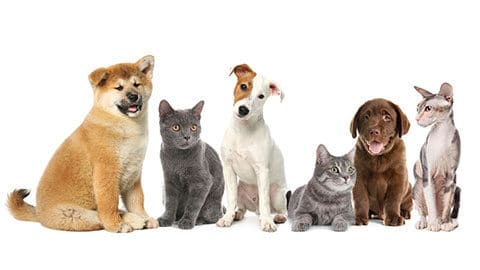Does Your Dog Need a Gluten-Free Diet? (Do You?)
Issues with human nutrition and digestion are not parallel to the dog’s digestive system or immune system, yet people seem to want to apply beliefs or facts about human diet trends (which are often fads!) to their pets. For example, the current attention being given to a “gluten free diet,” which is actually as irrelevant to most people as it certainly is to dogs. I happen to have celiac disease myself, which is an intolerance to the gluten found in most grains that can lead to serious health consequences if you don’t rigidly avoid gluten in any form. It’s an extremely strict diet and not one most people would willingly want to adhere to unless their life depended upon it! So why would people embrace this as a fad diet, and think that “gluten-free” is something to impose on their dogs. Pet owners also refer to a “grain-free diet,” when honestly they don’t exactly know what they mean by “grains,” since I find people often confused and amazed that I can eat rice, corn, quinoa and other “grain shaped” food items that actually contain no gluten.
Since I am hyper-aware of what constitutes a grain (because I must avoid most of them, especially wheat, rye, barley) I don’t know quite what to make of this general embrace of gluten-free products by people who do not actually have the disease. Pet food trends seem to follow human food preoccupations, so that “grain-free” becomes a desirable marketing catchphrase. In reaction, pet food manufacturers are finding it useful to view “grain-free” and “gluten-free” as important in their products because they perceive it is a trendy thing that dog owners want. But dogs don’t have celiac disease (and relatively few people actually have it, either) and gluten is nothing to avoid if you don’t have to!
[A random example of the misperceptions about gluten-free diets is that the tennis star Novak Djokovic, once the most dominant player in the world, switched to a gluten-free diet and wrote a book extolling the virtues of this choice. I imagine many people followed in his footsteps, and probably thought it would benefit their dogs, too! Perhaps they weren’t noticing that as Novak followed that gluten-free path he lost an exaggerated amount of weight so that he doesn’t look as strong and healthy as he did before, and his power and prominence has since plummeted, perhaps in part because of that diet or for personal reasons.]
Let’s go back to common sense, please! If our goals and desires for our pets’ health is driving the train of what goes into pet foods and how they are promoted, then wouldn’t it be better to go back to basics and choose a dog food based on our confidence in its overall recipe and the company’s reputation? Shouldn’t we be giving preference to pet foods that list real meat (chicken, lamb, salmon, etc.) and whole vegetables and other recognizable whole food ingredients—all hallmarks of higher quality nutrition? That’s why I choose Halo as the kibble I fed my own dogs, and most of my friends now follow my example, I’m proud to say! Let’s not distract ourselves or the pet food companies that cater to us with passing fancies about food ingredients or diet fads that are a waste of our time, and not doing a thing for our pets.
—Tracie Hotchner
(Have a comment? Share it on Facebook.)
Halo is a sponsor on Radio Pet Lady Network, by our invitation.
photo credit: Dis da fi we (was Hickatee) Hickatee pets – Frazer – Feed me PLEASE via photopin (license)

